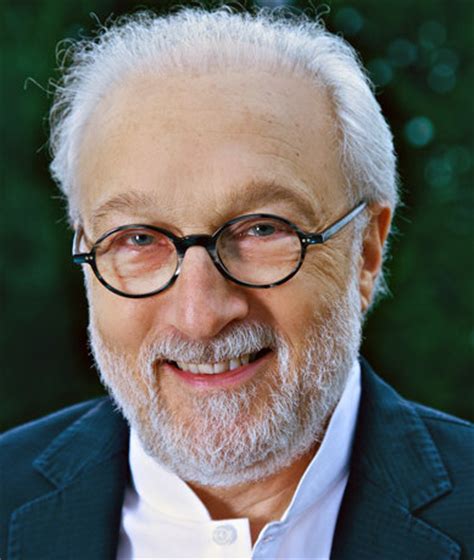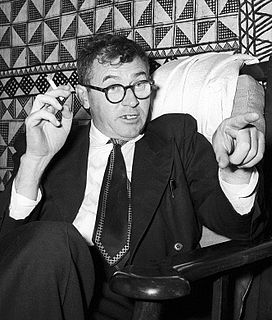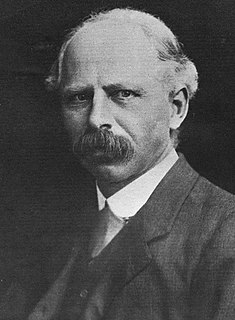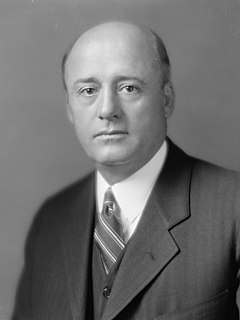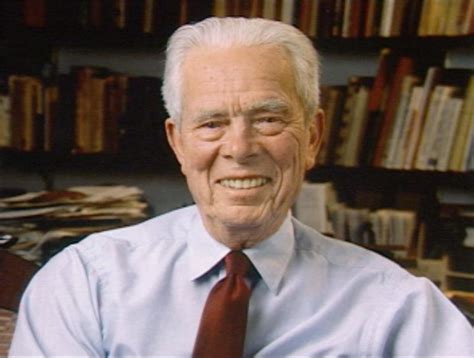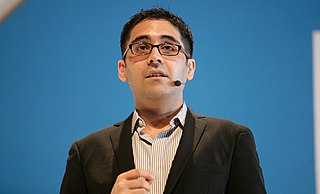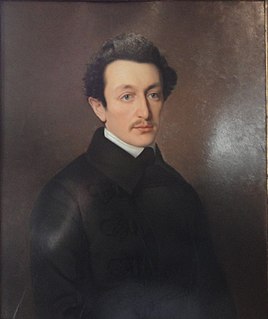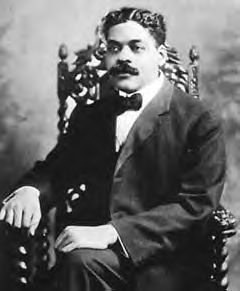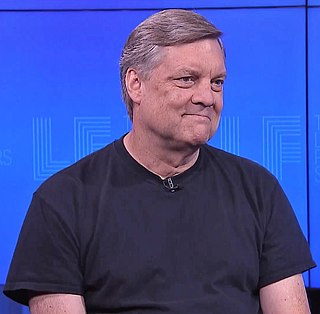Top 1200 Social Quotes & Sayings - Page 19
Explore popular Social quotes.
Last updated on November 25, 2024.
If we understand the mechanisms and motives of the group mind, it is now possible to control and regiment the masses according to our will without their knowing it In almost every act of our daily lives, whether in the sphere of politics or business, in our social conduct or our ethical thinking, we are dominated by the relatively small number of persons who understand the mental processes and social patterns of the masses. It is they who pull the wires which control the public mind.
Both in the US and throughout the world, there needs to be a growing presence of public development banks. These banks would make loans based on social welfare criteria - including advancing a full-employment, climate-stabilization agenda - as opposed to scouring the globe for the largest profit opportunities regardless of social costs.... Public development banks have always played a central role in supporting the successful economic development paths in the East Asian economies.
We in Germany could, for example, lower taxes. And who is against that? The Social Democrats.
We could also mobilize more private investments for public infrastructure projects liken the construction of highways. But the Social Democrats also reject this, even though they are at times similar to others abroad in their carping about the surplus. Incidentally, some of the consequences of the good economic situation are strong increases in wages, rising pensions and a strong labor market.
Social evolution is a resultant of the interaction of two wholly distinct factors: the individual ... bearing all the power of initiative and origination in his hands; and, second, the social environment with its power of adopting or rejecting both him and his gifts. Both factors are essential to change. The community stagnates without the impulse of the individual. The impulse dies away without the sympathy of the community.
Education without social action is a one-sided value because it has no true power potential. Social action without education is a weak expression of pure energy. Deeds uninformed by educated thought can take false directions. When we go into action and confront our adversaries, we must be as armed with knowledge as they. Our policies should have the strength of deep analysis beneath them to be able to challenge the clever sophistries of our opponents.
Capitalism as a social order and as a creed is the expression of the belief in economic progress as leading toward the freedom and equality of the individual in a free and open society. Marxism expects this society to result from the abolition of private profit. Capitalism expects the free and equal society to result from the enthronement of private profit as supreme ruler of social behavior.
Today, we are closer to fulfilling America's promise of economic and social justice because we stand on the shoulders of giants like Dr. King, yet our future progress will depend on how we prepare our next generation of leaders. We must fortify their ladders of opportunity by correcting social injustice, breaking the cycle of poverty in struggling communities, and reinvesting in our schools. Education can unlock a child's potential and remains our strongest weapon against injustice and inequality.
Constitutional rights are useful up to a point, but they do not serve to guarantee much more than what could be called the bourgeois conception of freedom. According to the bourgeois conception, a "free" man is essentially an element of a social machine and has only a certain set of prescribed and delimited freedoms; freedoms that are designed to serve the needs of the social machine more than those of the individual.
The working classes in every country only learn to fight in the course of their struggles...Social democracy...is only the advance guard of the proletariat, a small piece of the total working masses; blood from their blood, and flesh from their flesh. Social democracy seeks and finds the ways, and particular slogans, of the workers' struggle only in the course of the development of this struggle, and gains directions for the way forward through this struggle alone.
First they arrested the Communists - but I was not a Communist, so I did nothing. Then they came for the Social Democrats - but was not a Social Democrat, so I did nothing. Then they arrested the trade unionists - and I did nothing because I was not one. And then they came for the Jews and then the Catholics, but I was neither a Jew nor a Catholic and I did nothing. At last they came and arrested me - and there was no one left to do anything about it.
Within a social structure, a familial structure, or a cultural structure of various kinds, there is a substitute for actual freedom. I mean, actual freedom is a very abstract notion; we have no idea what it means, except within a context - freedom to do what? So within these social structures, freedom becomes defined as power, your ability to make choices, and the power relationship within a family, any family.
Science fiction - and the correct shortcut is 'sf' - uses actual scientific facts or theories for the source ideas or framework of the story. It has some scientific content, however speculative. If it breaks a law of physics, it knows it's doing so and follows up the consequences. If it invents a society of aliens, it does so with some respect for and knowledge of the social sciences and what you might call social probabilities. And some of it is literarily self-aware enough to treat its metaphors as metaphors.
The zooming wealth of the top 1 percent is a problem, but it's not nearly as big a problem as the tens of millions of Americans who have dropped out of high school or college. It's not nearly as big a problem as the 40 percent of children who are born out of wedlock. It's not nearly as big a problem as the nation's stagnant human capital, its stagnant social mobility and the disorganized social fabric for the bottom 50 percent.
The problem of values arises only when men try to fit together their need to be social animals with their need to be free men. There is no problem, and there are no values, until men want to do both. If an anarchist wants only freedom, whatever the cost, he will prefer the jungle of man at war with man. And if a tyrant wants only social order, he will create the totalitarian state.
As blacks, we need not be afraid that encouraging moral development, a conscience and guilt will prevent social action. Black children without the ability to feel a normal amount of guilt will victimize their parents, relatives and community first. They are unlikely to be involved in social action to improve the black community. Their self-centered personalities will cause them to look out for themselves without concern for others, black or white.
Introverts, in contrast, may have strong social skills and enjoy parties and business meetings, but after a while wish they were home in their pajamas. They prefer to devote their social energies to close friends, colleagues, and family. They listen more than they talk, think before they speak, and often feel as if they express themselves better in writing than in conversation. They tend to dislike conflict. Many have a horror of small talk, but enjoy deep discussions.
Could a person really make a social contribution through music consciously? I mean, beyond making a person happy to hear the song and more making a social contribution consciously through your music? For me, Stevie Wonder is the paragon of that. And I didn't want to be Stevie Wonder, but I did want to do what he does.
Darwin was one of our finest specimens. He did superbly what human beings are designed to do: manipulate social information to personal advantage. The information in question was the prevailing account of how human beings, and all organisms, came to exist; Darwin reshaped it in a way that radically raised his social status. When he died in 1882, his greatness was acclaimed in newspapers around the world, and he was buried in Westminster Abbey, not far from the body of Isaac Newton. Alpha-male territory.
The majority of Latinos in this country are 28 years old or younger. All of those people out there attacking the Latino community, when you see a Latino going down the street with a baby carriage and a couple of children walking beside them, they should say 'Hey, there goes my social security and my Medicare.' Those are the people that are going to contribute to keep our social security system funded and our medical system funded.
Psychologists would say that the only two important forms of social learning are imitation and teaching, and they will spend time trying to figure out if animals imitate or teach. Sometimes they find they do; sometimes they find they don't. And so that's kind of the level of controversy there. Biologists would include imitation and teaching and a range of other kinds of social learning. So we would call that culture, whereas the psychologist wouldn't.
Hwang Jung-eun is one of the brightest stars of the new South Korean generation - she's Han Kang's favourite, and the novel we're publishing scooped the prestigious Bookseller's Award, for critically-acclaimed fiction that also has a wide popular appeal. She stands out for her focus on social minorities - her protagonists are slum inhabitants, trans women, orphans - and for the way she melds this hard-edged social critique with obliquely fantastical elements and offbeat dialogue.
Anarchism is a definite intellectual current in the life of our times, whose adherents advocate the abolition of economic monopolies and of all political and social coercive institutions within society. In place of the present capitalistic economic order Anarchists would have a free association of all productive forces based upon co-operative labour, which would have as its sole purpose the satisfying of the necessary requirements of every member of society, and would no longer have in view the special interest of privileged minorities within the social union.
Mom & pop stores are not about something small; they are about something big. Ninety percent of all U.S. businesses are family owned or controlled. They are important not only for the food, drink, clothing, and tools they sell us, but also for providing us with intellectual stimulation, social interaction, and connection to our communities. We must have mom & pop stores because we are social animals. We crave to be part of the marketplace.
The revolution of Jesus is in the first place and continuously a revolution of the human heart or spirit...it is a revolution of character which proceeds by changing people from the inside through ongoing personal relationship to God in Christ and to one another. It is one that changes their ideas, beliefs, feelings, and habits of choice, as well as their bodily tendencies and social relations. It penetrates to the deepest layer of their soul. External, social arrangements may be used to this end, but they are not the end, nor are they a fundamental part of the means
Every day I am being told to sign up for Tumblr, Yammer, Friendfeed, Plaxo, Last.fm, ping.fm or the hot social-media tool du jour that happened to get mentioned on Mashable.com. It is like a social-media arms race. Each one of these new tools is like a cool new night club. Hot today, gone tomorrow, replaced with something else.
Mr. J.S. Mill speaks, in his celebrated work, "Utilitarianism," of the social feelings as a "powerful natural sentiment," and as "the natural basis of sentiment for utilitarian morality," but on the previous page he says, "if, as is my own belief, the moral feelings are not innate, but acquired, they are not for that reason less natural." It is with hesitation that I venture to differ from so profound a thinker, but it can hardly be disputed that the social feelings are instinctive or innate in the lower animals; and why should they not be so in man?
Terrorism is carried out purposefully, in a cold-blooded, calculated fashion. The declared goals of the terrorist may change from place to place. He supposedly fights to remedy wrongs -- social, religious, national, racial. But for all these problems his only solution is the demolition of the whole structure of society. No partial solution, not even the total redressing of the grievance he complains of, will satisfy him -- until our social system is destroyed or delivered into his hands.
People do need a social license to go, "Ha ha ha," and have a good time. It's a strange thing. There's a lot of social ritual around comedy and laughter. It's a bonding experience for groups, but nobody can tell you much about how funny somebody is. Sometimes people just need to be in a group and be laughing together, just like they need to be in a group in watching some really terrifying film.
If men were able to be convinced that art is a precise advance knowledge of how to cope with the psychic and social consequences of the next technology, would they all become artist? Or would they begin a careful translation of new art forms into social navigation charts? I am curious to know what would happem if art were suddenly seen for what it is, namely, exact information of how to rearrange one's psyche in order to anticipate the next blow from our own extended faculties.
We need a common European tax policy that closes these tax loopholes. We need a common European social policy that prevents social dumping. We need an effective securing of our external borders and a smart way of fighting terrorism. Acting as a state within a national framework is no longer enough. The German chancellor has completely failed to convey that throughout her years in power. We need a re-start for Europe.
For a woman ... to explore and express the fullness of her sexuality, her ambitions, her emotional and intellectual capacities, her social duties, her tender virtues, would entail who knows what risks and who knows what truly revolutionary alteration to the social conditions that demean and constrain her. Or she may go on trying to fit herself into the order of the world and thereby consign herself forever to the bondage of some stereotype of normal femininity - a perversion, if you will.
Nation states are not a solution for democratic governance. This is same for Kurdish people. To see it as a solution is same as trying to drink water while drowning. The real necessity is oxygen not water. The solution is to get out of water and take a deep breath, decrease nation state and increase social democracy. Therefore our requests of a state are no further than a social and deeply rooted democracy.
Venezuela, Ecuador, Bolivia, and Nicaragua have made a tremendous leap just by rejecting the neoliberal adjustment policies, they are making a statement from the social perspective. Capital in these cases has not been protected in any way which along with non - interference of the state is what neo liberalism stands for. It has gone the other way around; they have looked for social policies from the political movements and then when they have acquired the power of those political movements they have become in charge of the State.
On the one hand, we have the mass; on the other, its historic goal, located outside of existing society. On one hand, we have the day-to-day struggle; on the other, the social revolution. It follows that this movement can best advance by tacking betwixt and between the two dangers by which it is constantly being threatened. One is the loss of its mass character; the other, the abandonment of its goal. One is the danger of sinking back to the condition of a sect; the other, the danger of becoming a movement of bourgeois social reform.
A … difference between most system-building in the social sciences and systems of thought and classification of the natural sciences is to be seen in their evolution. In the natural sciences both theories and descriptive systems grow by adaptation to the increasing knowledge and experience of the scientists. In the social sciences, systems often issue fully formed from the mind of one man. Then they may be much discussed if they attract attention, but progressive adaptive modification as a result of the concerted efforts of great numbers of men is rare.
...chimpanzees, bonobos, gorillas, and orangutans are thinking, self-aware beings, capable of planning ahead, who form lasting social bonds with others and have a rich social and emotional life. The great apes are therefore an ideal case for showing the arbitrariness of the species boundary. If we think that all human beings, irrespective of age or mental capacity, have some basic rights, how can we deny that the great apes, who surpass some humans in their capacities, also have these rights?
It's my firm conclusion that human meaning comes from humans, not from a supernatural source. After we die, our hopes for an afterlife reside in the social networks that we influenced while we were alive. If we influence people in a positive way -- even if our social web is only as big as our nuclear family -- others will want to emulate us and pass on our ideas, manners, and lifestyle to future generations. This is more than enough motivation for me to do good things in my life and teach my children to do the same.
I do not mean to impugn the social justice and social expediency of the redistribution of incomes aimed at by N.I.R.A. and by the various schemes for agricultural restriction. The latter, in particular, I should strongly support in principle. But too much emphasis on the remedial value of a higher price-level as an object in itself may lead to serious misapprehension as to the part which prices can play in the technique of recovery. The stimulation of output by increasing aggregate purchasing power is the right way to get prices up; and not the other way round.
Anarchism is no patent solution for all human problems, no Utopia of a perfect social order, as it has often been called, since on principle it rejects all absolute schemes and concepts. It does not believe in any absolute truth, or in definite final goals for human development, but in an unlimited perfectibility of social arrangements and human conditions which are always straining after higher forms of expression, and to which for this reason one can assign no definite terminus nor set any fixed goal.
Fitzgerald describes the social disillusionments and ballroom romanticism of the young people of the upper classes and the loneliness of Gatsby, who gives large parties and has an extensive social life; yet he is lonely, and his guests scarcely know him.... Hemingway's characters live in a tourist world, and one of their major problems is that of consuming time itself. It is interesting to observe that his works are written from the stand point of the spectator. His characters are usually people who are looking--looking at bullfights, scenery, and at one another across cafe tables.
Many aspects of our screen-bound lives are bad for our social skills simply because we get accustomed to controlling the information that comes in, managing our relationships electronically, deleting stuff that doesn't interest us. We edit the world; we select from menus; we pick and choose; our social 'group' focuses on us and disintegrates without us. This makes it rather confusing for us when we step outdoors and discover that other people's behaviour can't be deleted with a simple one-stroke command or dragged to the trash icon.
The organizer of industry who thinks he has 'made' himself and his business has found a whole social system ready to his hand in skilled workers, machinery, a market, peace and order - a vast apparatus and a pervasive atmosphere, the joint creation of millions of men and scores of generations. Take away the whole social factor, and we have not Robinson Crusoe with his salvage from the wreck and his acquired knowledge, but the native savage living on roots, berries and vermin.
Anarchy, when it works to destroy authority in all its aspects, when it demands the abrogation of laws and the abolition of the mechanism that serves to impose them, when it refuses all hierarchical organization and preaches free agreement - at the same time strives to maintain and enlarge the precious kernel of social customs without which no human or animal society can exist. Only, instead of demanding that those social customs should be maintained through the authority of a few, it demands it from the continued action of all.
Public education is a great instrument of social change. Through it, if we so desire, we can make our country more nearly a democracy without classes. To do so will require the efforts of us all-teachers, administrators, taxpayers and statesmen. Education is a social process, perhaps the most important process in determining the future of our country; it should command a far larger portion of our national income than it does today.
When the concept of Social Security came before the House, every Republican but one voted against it. Had it not been for the Democrats, Social Security would never have passed, and our older people would not have this great support that our people provide. It has been my experience that Democrats generally vote to protect the people, while Republicans seem to try to protect the interests of big business.
Student loans have been helpful to many. But they offer neither incentive nor assistance to those students who, by reason of family or other obligations, are unable or unwilling to go deeper into debt. ... It is, moreover, only prudent economic and social policy for the public to share part of the costs of the long period of higher education for those whose development is essential to our national economic and social well-being. All of us share in the benefits - all should share in the costs.
The gap between the rich and poor is growing among and within most nations. The political and social effects of unequal location of energy and other mineral resources are acute. Population numbers continue to climb. The global environment shows signs of widespread deterioration. Both natural and social environments are increasingly vulnerable to catastrophic disturbances... There may, however, be a cheering challenge in the possibility that out of its struggle with these realities the human race may move a bit nearer to behaving as if it were indeed one family.
The challenges that young people are mobilizing against oppressive societies all over the globe are being met with a state-sponsored violence that is about more than police brutality. This is especially clear in the United States, given its transformation from a social state to a warfare state, from a state that once embraced a semblance of the social contract to one that no longer has a language for justice, community and solidarity - a state in which the bonds of fear and commodification have replaced the bonds of civic responsibility and democratic vision.
The social [media channel] isn't about beauty contests and popularity contests. They're a distortion, a caricature of the real thing. It's about trust, connection, and community. That's what there's too little of in today's mediascape, despite all the hoopla surrounding social tools. The promise of the Internet wasn't merely to inflate relationships, without adding depth, resonance, and meaning. It was to fundamentally rewire people, communities, civil society, business, and the state — through thicker, stronger, more meaningful relationships. That's where the future of media lies.
Education as a democratic project always presupposes a vision of the future in its introduction to, preparation for, and legitimation of particular forms of social life. It is utopian in its goal of expanding and deepening the ideological and material conditions that make a democracy possible. As a moral and political practice, education produces the modes of literacy, critique, sense of social responsibility, and civic courage necessary to imbue young people with the knowledge and skills needed to enable them to be engaged critical citizens willing to fight for a sustainable and just society.
While its [Harvard's] undergraduate life was still controlled [in 1908-1912] by a select group of rich and fashionable families whose sons merely arrived when they were due to fill the places that had been waiting for them from the day they were born, it was, at the same time, opening its doors to a more cosmopolitan student population and beginning to take the first tentative steps toward mitigating the evils of a pyramidal social system that concentrated all its social honors upon the rich and the wellborn.
The focus of all life is its economy, the mode through which every living creature produces its material existence. I know no other criterion for the evaluation of social life except that of social economy. In society, just like anywhere else, the mode of production is the focus around which revolve all the modes of life: in the historical life of conscious beings, it is also the focus of all modes of consciousness.
The American Negro must rebuild his past in order to make his future. Though it is orthodox to think of America as the one country where it is unnecessary to have a past, what is a luxury for the nation as a whole becomes a prime social necessity for the Negro. For him, a group tradition must supply compensation for persecution, and pride of race the antidote for prejudice. History must restore what slavery took away, for it is the social damage of slavery that the present generation must repair and offset.
The worst aspect of dating from the perspective of many men is how dating can feel to a man like robbery by social custom - the social custom of him taking money out of his pocket, giving it to her, and calling it a date. To a young man, the worst dates feel like being robbed and rejected. Boys risk death to avoid rejection (e.g., by joining the Army
The techno-industrial system is exceptionally tough due to its so-called "democratic" structure and its resulting flexibility. Because dictatorial systems tend to be rigid, social tensions and resistance can be built up in them to the point where they damage and weaken the system and may lead to revolution. But in a "democratic" system, when social tension and resistance build up dangerously the system backs off enough, it compromises enough, to bring the tensions down to a safe level.
Almsgiving tends to perpetuate poverty; aid does away with it once and for all. Almsgiving leaves a man just where he was before. Aid restores him to society as an individual worthy of all respect and not as a man with a grievance. Almsgiving is the generosity of the rich; social aid levels up social inequalities. Charity separates the rich from the poor; aid raises the needy and sets him on the same level with the rich.
The most important domestic challenge facing the U.S. at the close of the twentieth century is the re-creation of fatherhood as avital social role for men. At stake is nothing less than the success of the American experiment. For unless we reverse the trend of fatherlessness, no other set of accomplishments--not economic growth or prison construction or welfare reform or better schools--will succeed in arresting the decline of child well-being and the spread of male violence. To tolerate the trend of fatherlessness is to accept the inevitability of continued social recession.






















